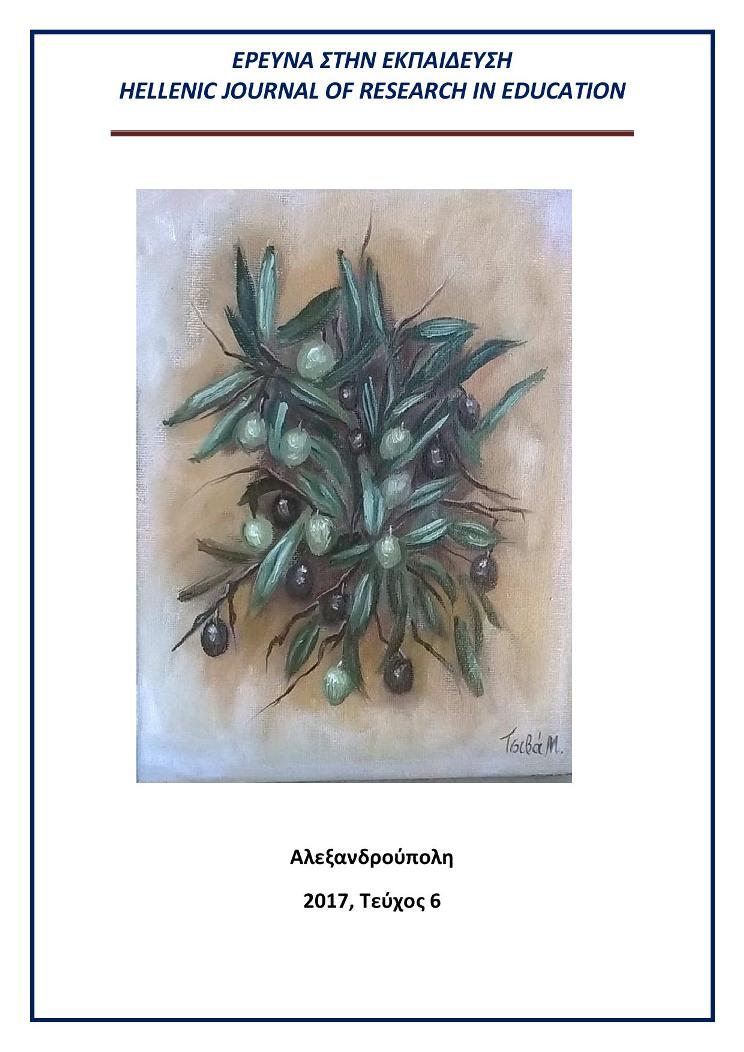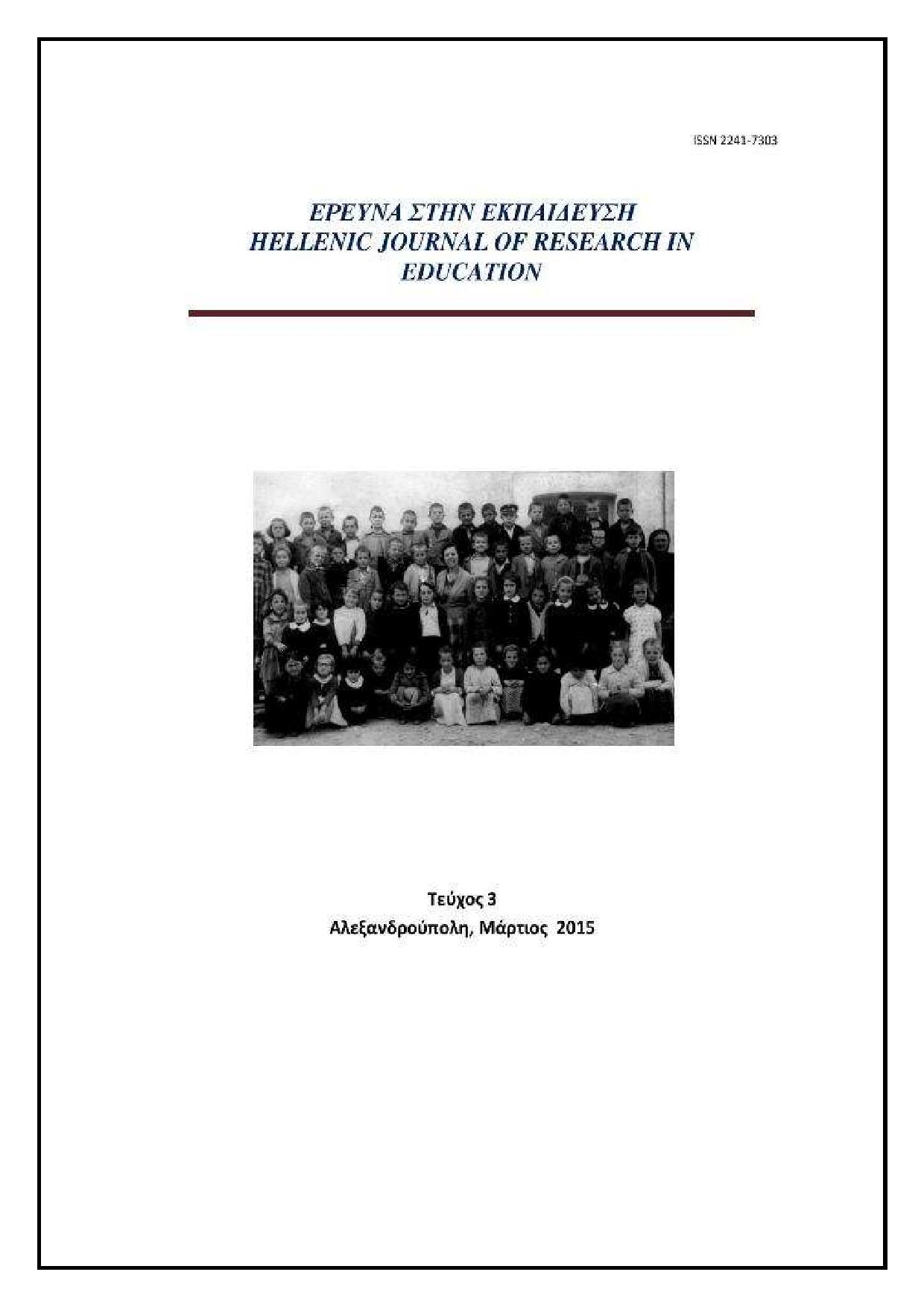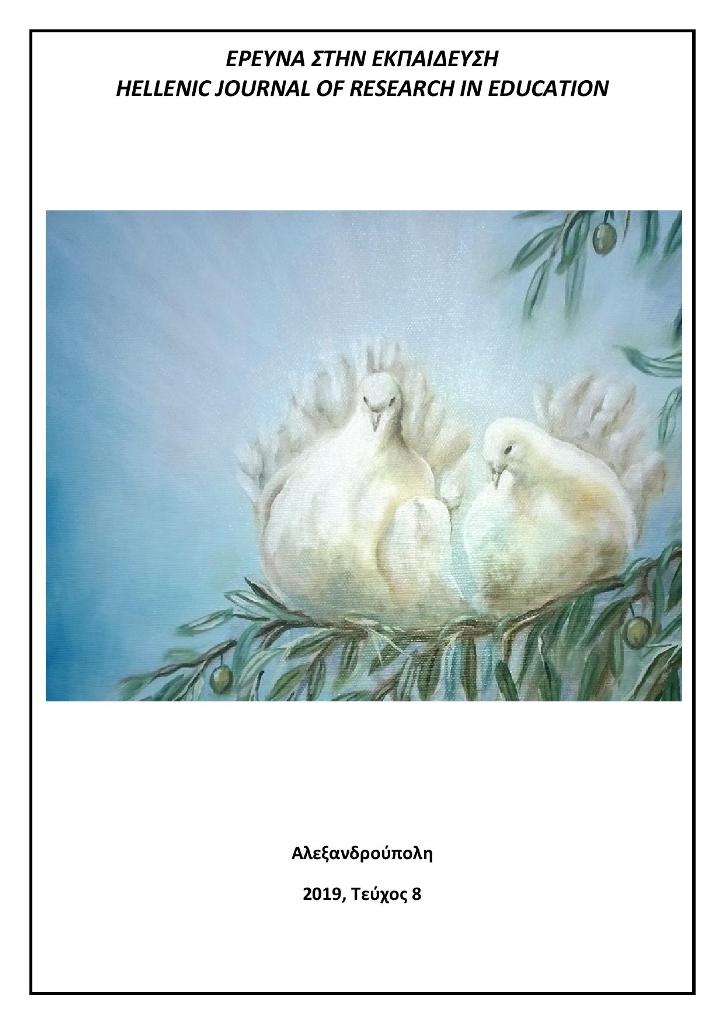Ο ρόλος του μέντορα στο ελληνικό εκπαιδευτικό σύστημα: διερεύνηση απόψεων εκπαιδευτικών πρωτοβάθμιας εκπαίδευσης νομού Θεσσαλονίκης για την αναγκαιότητα εφαρμογής του θεσμού

Περίληψη
Στόχος της παρούσας έρευνας είναι η διερεύνηση του τρόπου με τον οποίο εκπαιδευτικοί της Πρωτοβάθμιας Εκπαίδευσης αντιλαμβάνονται το ρόλο του μέντορα (mentoring) ως υποστηρικτική δομή. Συνάμα, προσανατολίζεται στη διερεύνηση της άποψης των εκπαιδευτικών για την αναγκαιότητα εισαγωγής του θεσμού, τον πιθανό βαθμό ανταπόκρισής του στις ανάγκες των εκπαιδευτικών και τις προϋποθέσεις αποτελεσματικής εφαρμογής του. Συμμετέχοντες στην έρευνα ήταν 215 εκπαιδευτικοί πρωτοβάθμιας εκπαίδευσης. Η στατιστική επεξεργασία των δεδομένων του ερωτηματολογίου έγινε με τη χρήση του στατιστικού λογισμικού S.P.S.S. 22. Έγινε έλεγχος όλων των μεταβλητών με βάση το φύλο και τη διδακτική/εργασιακή εμπειρία. Επιπρόσθετα, οι προϋποθέσεις εφαρμογής του θεσμού (Ενότητα Ε1) ελέγχθηκαν και σε σχέση με τα τυπικά και επιπρόσθετα προσόντα. Στη συνέχεια, πραγματοποιήθηκε ενδελεχής ανάλυση με βάση τα ευρήματα των πινάκων συνάφειας και των αναδυόμενων συσχετίσεων. Τα ερευνητικά αποτελέσματα ανέδειξαν ότι οι εκπαιδευτικοί συναινούν στην εφαρμογή του θεσμού με ένα πιλοτικό πρόγραμμα, που αξιοποιεί ερευνητικά πορίσματα και επιτυχημένες διαρθρώσεις προγραμμάτων εφαρμοσμένων στο εξωτερικό, διενεργώντας τις απαραίτητες προσαρμογές στα ελληνικά δεδομένα αλλά καταγράφηκε μια δυσπιστία κυρίως από το έμπειρο εκπαιδευτικό προσωπικό. Η ενσωμάτωση του θεσμού στις σχολικές μονάδες διαφαίνεται ότι εξυπηρετεί την εξατομικευμένη αντιμετώπιση των αναγκών του εκπαιδευτικού πληθυσμού. Συνάμα, αναδύεται ότι το καθοδηγητικό πρόγραμμα ενέχει τη δυναμική ανάπτυξης συνεργατικής επαγγελματικής κουλτούρας με απόρροια τη διάχυση της ωφέλειας στους εμπλεκόμενους της εκπαιδευτικής διαδικασίας.
Λεπτομέρειες άρθρου
- Πώς να δημιουργήσετε Αναφορές
-
Παππά Ε., & Ιορδανίδης Γ. (2017). Ο ρόλος του μέντορα στο ελληνικό εκπαιδευτικό σύστημα: διερεύνηση απόψεων εκπαιδευτικών πρωτοβάθμιας εκπαίδευσης νομού Θεσσαλονίκης για την αναγκαιότητα εφαρμογής του θεσμού. Έρευνα στην Εκπαίδευση, 6(1), 112–130. https://doi.org/10.12681/hjre.13782
- Τεύχος
- Τόμ. 6 Αρ. 1 (2017)
- Ενότητα
- Άρθρα

Αυτή η εργασία είναι αδειοδοτημένη υπό το CC Αναφορά Δημιουργού – Μη Εμπορική Χρήση – Παρόμοια Διανομή 4.0.
Τα πνευματικά δικαιώματα των άρθρων του περιοδικού ανήκουν στους συγγραφείς. Τα άρθρα διατίθενται με άδειες Creative Commons CC-BC-SA 4.0




